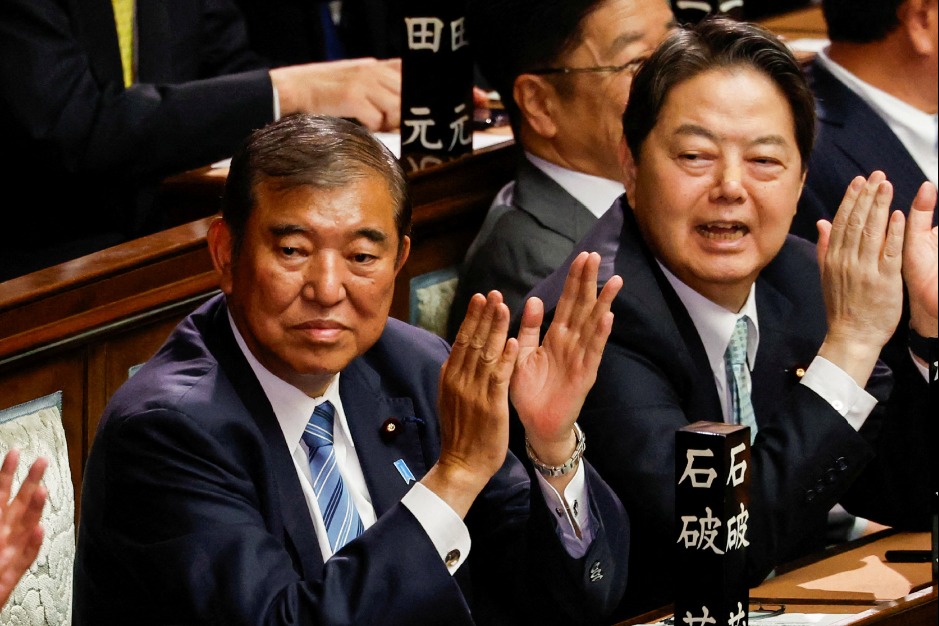Film shows real faces of 'comfort women'

|

Tiffany Hsiung (left), writer and director of The Apology, talks with Grandma Cao at Cao's home last year.Provided To China Daily
|
After decades of living in silence and shame, so-called comfort women - who were sexually exploited by the Japanese military in World War II - have been given a face in a new documentary that gives firsthand accounts of their brutal experiences during a horrific chapter of history.
The film, The Apology, recounts the personal ordeals of three women - Grandma Gil in South Korea, Grandma Cao in China and Grandma Adela in the Philippines.
"For me it's important to give them a face, so they can share what they want to share and also teach us, the younger generation, about history, as well as what their lives were like after the war," said Tiffany Hsiung, who wrote and directed the film.
During the war, hundreds of thousands of women and girls were sexually enslaved by the Imperial Japanese Armed Forces in Asia-Pacific countries, mostly China and Korea. They were euphemistically called "comfort women".
These war crimes, however, were swept under the rug, and the survivors struggled on their own with the aftereffects of their harrowing experiences.
By showing intimate scenes of the now elderly women's daily routines and interactions with friends and loved ones, the film provides a glimpse into how they have managed to carry on despite the horrors they lived through.
Grandma Gil has been attending weekly demonstrations in front of the Japanese embassy in Seoul for years. Despite her age and declining health, she remains a powerful voice in the movement demanding an official apology from the Japanese government.
Grandma Cao lives in a rural mountain village in China, where what befell hundreds of local girls after they were kidnapped by Japanese troops has long been a well-known secret among the old-timers of the area. It was only when a historian requested her testimony about her war experiences that Grandma Cao agreed to break decades of stoic silence and talk about her painful past.
Likewise, Grandma Adela hid the truth from her husband. Now widowed, she carries feelings of guilt for not sharing her secret with him.
She resolved to tell her children, but remains unsure whether unburdening herself after all these years will make up for withholding the truth from the love of her life.
"Time is running out. If we don't capture their stories, if we don't hear it from them, it will be too late," said Hsiung, who is of Chinese descent. She lives in Toronto, Canada.
She started documenting the lives of former comfort women in 2009. The film, which was released last year, has garnered several honors, including the Busan Cinephile Award at the Busan International Film Festival, the Audience Award at the 2016 Cork Film Festival and Film of the Year at the West Lake International Documentary Festival in China.
The Apology will be screened in San Francisco from June 8 to 11 and from there travel to New York and other cities in the United States.
Hsiung said the majority of US audiences don't really know much about the issue, but the reaction they get is what they had hoped for - deeply felt compassion.
"The film is for a universal audience. You don't have to be Asian to understand or feel connected to these women, the things that they continuously go through and how incredibly strong and resilient they are," she said.
The biggest message of the film is for people to understand the role that they all potentially play in the shame.
"I think we can all do a better job of listening to the survivors of sexual violence so that they can pass that on," she said. "We can all make that change. It's a small change, but I think it has a really big impact."
liazhu@chinadailyusa.com

































